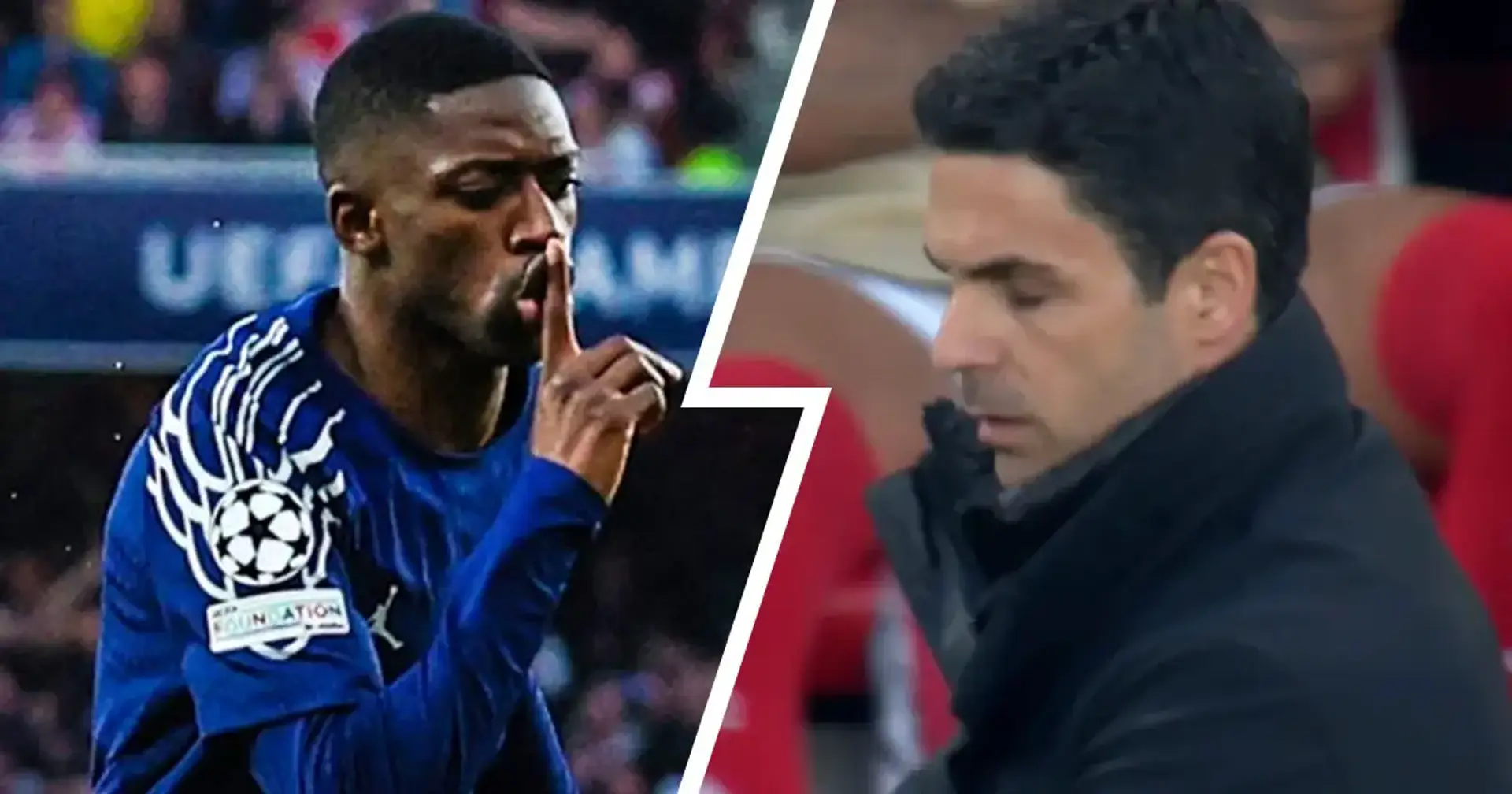Sport
“Mark Clattenburg Explains Why Khvicha Kvaratskhelia Wasn’t Awarded Penalty vs Arsenal”

In the aftermath of a pulsating Champions League semi-final clash between Arsenal and Paris Saint-Germain at the Emirates Stadium, former Premier League referee Mark Clattenburg has weighed in on one of the game’s most controversial moments—why Khvicha Kvaratskhelia was not awarded a penalty after what looked like a clear foul inside the box.
The match began with fireworks, as PSG’s Ousmane Dembélé struck a sensational goal just four minutes in, silencing the home crowd and putting the visitors in control. The early strike emphasized the Parisians’ hunger to reach the final, and Arsenal were immediately put on the back foot. But soon after, came a moment that had fans and pundits alike questioning the integrity of the officiating.
Kvaratskhelia, the dynamic Georgian winger, was seen weaving his way into the Arsenal penalty area before appearing to be dragged down by Arsenal defender Jurrien Timber. Replays showed Timber wrapping his arms around the PSG man, but to the astonishment of many, no penalty was given.
Social media erupted, with many claiming it was a “stonewall” penalty and suggesting that Arsenal had been let off the hook. Yet in the commentary booth on Amazon Prime, Mark Clattenburg offered a different perspective, defending the referee’s decision not to point to the spot.
According to Clattenburg, the key detail lay not in the contact itself, but in how Kvaratskhelia fell. “What the referee is looking for in these situations is the naturalness of the fall,” he explained. “Kvaratskhelia’s arm went up too quickly, almost as if he was trying to signal to the referee that he had been fouled, rather than just falling naturally.”
Clattenburg went on to say that the attacker’s reaction after the challenge did not help his case. “Running straight to the referee, arms flailing, shouting—it’s dissent. It adds to the perception that he was trying to influence the decision rather than accepting what happened.”
In fact, the former official went so far as to say the PSG man should have been booked for simulation and dissent. “I wouldn’t have been surprised if a yellow card had been shown,” he added. “That type of behavior, especially at this level, is something UEFA wants to stamp out.”
The incident has sparked fierce debate online. While Arsenal fans are relieved that no penalty was awarded, neutral fans and PSG supporters are still fuming. Many pointed out the inconsistency in refereeing across competitions, with similar incidents being called differently from game to game.
This wasn’t the only moment in the match where PSG felt hard done by. Earlier, they had a goal ruled out for offside after a lengthy VAR check, leaving manager Luis Enrique visibly frustrated on the touchline. That frustration only grew as Arsenal found their rhythm in the second half, eventually equalizing through Gabriel Jesus and earning a 1-1 draw.
UEFA have yet to comment on the incident, but it is believed that PSG are preparing a formal complaint about the refereeing standards in the match. The club reportedly believes there was a pattern of decisions that went against them, including the failure to award the Kvaratskhelia penalty.
Despite the controversy, Clattenburg’s comments offer a reminder of how much subjectivity still plays a role in refereeing. Even with the advent of VAR, human interpretation remains a key factor in crucial decisions.
For Arsenal, the decision represents a lifeline in a game they could easily have lost by two or three goals. The Gunners now travel to Paris for the second leg with the tie finely poised, but with confidence that they can contain PSG’s attacking threats.
As for Kvaratskhelia, the Georgian winger will likely feel aggrieved. It was a golden opportunity to draw a penalty and possibly give his side a crucial two-goal cushion. He has been one of PSG’s standout performers this season, and this moment could have been another defining contribution.
The incident has reignited the debate around simulation and how referees interpret body language during fouls. Should players be punished for trying too hard to convince the referee? Or should contact alone be the determining factor?
Clattenburg’s stance adds nuance to that conversation. While acknowledging there was contact, he argued that the attacker’s exaggeration created doubt. “It’s not always about how much contact there is, but how you respond to it,” he concluded.
The return leg promises to be fiery. Arsenal, emboldened by the result, will look to take the fight to PSG. But with Kvaratskhelia and Dembélé in such electric form, anything could happen in Paris.
For now, the debate will rage on. Was it a penalty or not? Clattenburg says no. PSG fans say yes. And UEFA? We wait to see what action, if any, they will take.
-

 Sport9 months ago
Sport9 months ago“I’m not trying to criticize Ancelotti, but I’m not happy with him for benching that player”: Bellingham Expresses Frustration Over Ancelotti’s Tactical Decision
-

 Sport9 months ago
Sport9 months agoBREAKING: Manchester City vs Liverpool Clash Cancelled! Title Race Takes a Twist
-

 Sport9 months ago
Sport9 months agoArsenal Poised for January Swoop on €70 Million Star Dusan Vlahovic
-

 Sport9 months ago
Sport9 months agoWHAT ON GOD’S GREEN EARTH DID WE JUST SEE?!
-

 Sport9 months ago
Sport9 months agoReal Madrid: Carlo Ancelotti’s Surprising Revelations About an Unexpected Quality of Vinicius
-

 Sport9 months ago
Sport9 months agoBREAKING: Arsenal’s Champions League Quarterfinal Opponent Revealed After Monaco’s Dramatic Win – Tough Challenges Await Arteta’s Men
-

 Sport9 months ago
Sport9 months agoChelsea Players Facing Suspension as Yellow Cards Mount
-

 Sport9 months ago
Sport9 months agoKey Arsenal Player Set for Return as Gunners Face Struggling Everton
